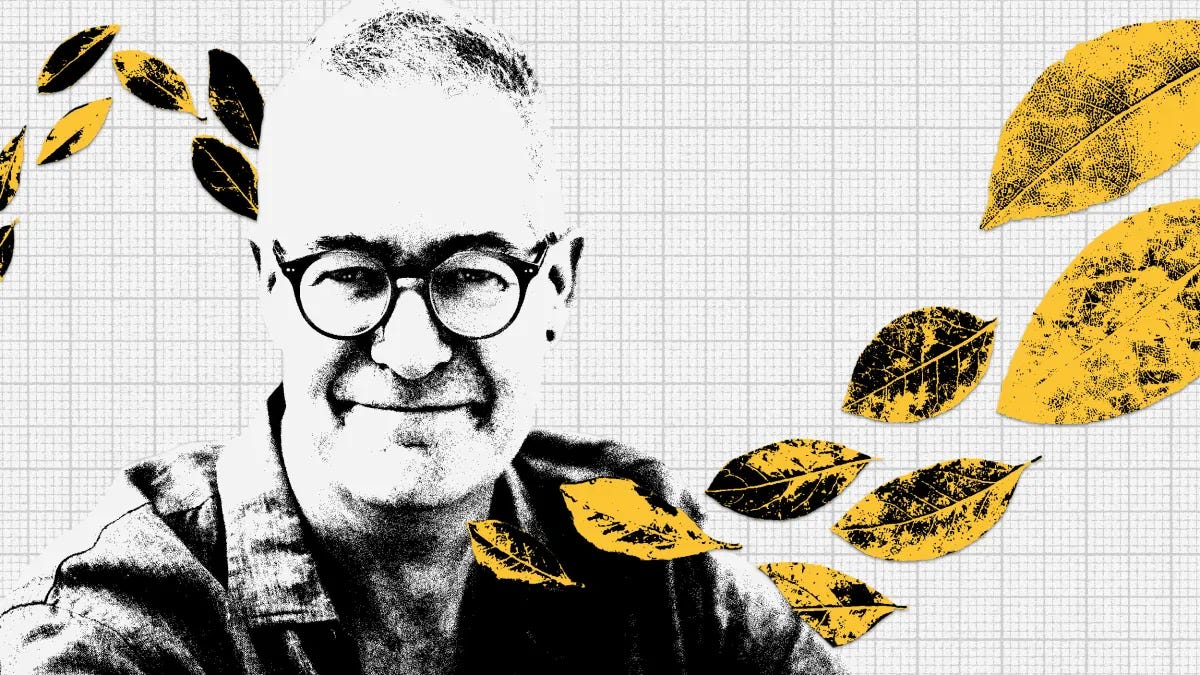Why you must be logical and scientific to be a good person
The more you know, the better you can act.

In their cloistered and ancient buildings, academics are in the middle of a war. There’s always some kind of war going on in universities. In the European Middle Ages, it was between orthodoxy and heresy. In the Enlightenment, it was between the rationalists and the empiricists. But today, one of the sharpest battle lines is between the scientistic and the rest.
Being “scientistic” is different from being a scientist. A scientist is just someone who does science, but to behave scientistically is to believe that science is the only way of knowing. At its extreme, it believes that science is the only way of living. And so, the gunshot that started the current war is the question: What is there left for the non-sciences to really tell us about the world? Today, science has pushed back the fog of knowledge farther and farther. We know about the fundamental forces and the quantum world. We know about neurotransmitters and epigenetics. We are getting closer to a great “theory of everything.” So what are philosophers, sociologists, psychoanalysts, and arts graduates to do?
While science is no doubt farther along, the debates are older than we might think. This battle between the scientistic and the rest goes back to the ancient world. To find out more, I spoke with the philosopher and biologist Massimo Pigliucci, the author of Beyond Stoicism: A Guide to the Good Life with Stoics, Skeptics, Epicureans, and Other Ancient Philosophers. As an academic with one foot in either camp, he is perfectly placed to shed some light on the topic.
Science is best
There are two questions we need to address. The first is whether science is the best, or even only, way of knowing. And the second is: What is there left for non-scientists to do? This is what Pigliucci had to say about the first:
“So, if we’re talking about knowing things about the world as it is, then yeah, science is the only way of knowing. There really is no other way around that. Or it is, at least, by far the best way that we have invented. You know, what are the alternatives?
Intuition? Well, intuition is just the subconscious processing of information by your brain. Sometimes it’s correct, sometimes it’s not. How do I know if it is correct? I check it. But as soon as you move from simple intuition to ‘Let me see,’ you’re doing science.
Philosophy? Philosophy is not in the business of discovering things about the world; it’s in the business of understanding the big picture. It’s in the business of answering questions of meaning, but it’s not in the business of discovering new stuff about the world.
Religion? Well, good luck with that. You know, the moment a set of religious beliefs gives us something that is equivalent to, I don’t know, fundamental physics or evolutionary biology, then I’ll pay attention. But they’re not even close to that, you know.
Mysticism? Same idea. I mean, there you’ve got a lot of vague notions that are not particularly useful.
So, in that sense, yes, I think science is, in fact, the only way or by far the best way to understand the world. But understanding the world is not the only thing.”
Empirically guided values
There is a problem in philosophy that never quite goes away, which is called the “naturalistic fallacy.” The problem is that no matter how many facts about the world we present, we can never derive an “ought,” or a moral statement. If you say, “This thing causes pain,” then you still need to tell me why causing pain is bad.
For Pigliucci, this is where philosophy comes in.
“There is a model of ethics called ‘naturalistic ethics’ in modern times that was prevalent in ancient Greece and Rome. All of the schools of virtue ethics — Stoicism, Scepticism, Aristotelianism, Platonism — essentially subscribe to this model. And this model, in the broad sense of the term, is just the study of how to live a good life. And so, ethics is, in fact, an empirically informed way of doing philosophy in that if you don’t understand what a human being is or what human nature is or how we work, then on what basis are you going to do ethics?
I’ll give you an example. Science tells you that torture doesn’t lead to human flourishing. Human beings don’t enjoy being tortured, not only in the obvious physical sense but also in the broader psychological sense, because they then develop all sorts of post-traumatic disorder symptoms. And so, your entire way of acting is going to be undermined. Now, of course, you don’t need science to tell you this. You just need to be a reasonable observer of human nature. But that’s what I mean. Facts like ‘human beings do not enjoy being tortured’ lead to the conclusion that, therefore, torture should not be allowed in modern societies because it doesn’t increase human flourishing.”
How to act properly
Science is the best tool we have to understand the world, and we need to understand the world to behave morally — at least in the ancient Greek sense of naturalistic ethics. But there’s another reason why science and logic make us better people — and it has to do with decision-making.
“Back in the 19th century, a mathematician named Clifford wrote this famous paper called The Ethics of Belief, where he argued that it’s always immoral to believe something for which there is no good reason to believe it, which strikes a lot of people as very odd. What does that mean? You know, all sorts of people believe all sorts of things for which they don’t have any particular reason. Are they all acting immorally? And Clifford was pretty adamant: Yeah, they are.
The reason for that is that you’re much more likely to make a mistake if your belief is not grounded in empirical evidence, and so if you knowingly do that, according to Clifford, then it’s unethical. Well, it turns out Cicero said exactly the same thing.
Cicero said you should never believe something for which you don’t have what the philosophers call ‘sufficient epistemic warrant.’ The Stoics argued that if you want to live a good life, you need to understand the world in which you live as much as possible. Because if you don’t understand it, or if you misunderstand it, then you’re going to make bad decisions, some of which may be fatal.
So, in other words, you have to practice science, as we would say today — not as a professional scientist, of course — but you have to have a minimum understanding of how the world works.
Finally, you also have to be able to use logic and reason correctly, or as correctly as possible, about what you think you know, because even if you have factually correct information, if you’re not reasoning correctly about it, you’re not drawing the right conclusions from that information. So, in the case of both the Stoics and the academic skeptics, the goal was the same: Live a life worth living — a good life, a life of flourishing. And in both cases, they thought, well, the way you get there is by understanding the world and thinking carefully about it.”
Jonny is the creator of the Mini Philosophy social network. He’s an internationally bestselling author of three books and the resident philosopher at Big Think. He's known all over the world for making philosophy accessible, relatable, and fun.
More Big Think content:
Big Think | Big Think Business | Starts with a Bang | Big Think Books





Thanks for the piece.
> In their cloistered and ancient buildings, academics are in the middle of a war.
I don’t think they are. They might be in a struggle for power, or involved in a serious argument, but academics tend to avoid war fighting, let alone be “in the middle” of one. Unscientific people, the ones you say aren’t well equipped to be ethical, are generally the ones who find themselves put in that particular position of directly taking and saving lives. I think the conflicts academics are currently involved in are more centered around ideas.
> And so, ethics is, in fact, an empirically informed way of doing philosophy in that if you don’t understand what a human being is or what human nature is or how we work, then on what basis are you going to do ethics?
I don’t know. Do you own a dog? I love dogs. Some of the finest most honorable beings I’ve ever known have been dogs. If I were standing with one of the world’s top scientists in one end of my home, and say we heard a burglar break in the other end, I think there’s a decent chance the scientist says “run!” and without a thought slips out a window. I know for certain my dog would run directly at the burglar and defend me and my home with his life. Of course this same kind of moral dedication can be seen in service dogs of all kinds, and can take the form of gentle compassion just as easily. And they are far less prone to abandon their moral duty under duress than most people, particularly academics.
The job of caregiver is one of the most common, and low paying, in the U.S. and is associated with minimal education. I’ve known many of them through their care of a loved one with severe dementia. Most of them demonstrate a far more moral approach to other people than myself or any scientist I’ve ever known. They have gained their moral insights through firsthand observation of suffering and it appears to have given them greater perspective in this regard than many people who study texts on the subject.
There is a certain amount of courage, kindness, resilience, selflessness and grit that moral action necessitates, and I have never noticed that scientists have more of these attributes than the unscientific and in fact, it’s my impression that simpler people often exceed academics in this respect.
Nice article, but I think a shade on the utilitarian side. That is, your discussion of the usefulness of science looks absolutely right - but it doesn't, as you acknowledge, really even touch the most important questions in life - why we are here, how we should live, etc.
I wondered, as I so often do nowadays, if you have read Iain McGilchrist's books such as "The Master and his Emissary". Because your article looks to me a bit left-brained. Unimpeachable on the "what" and the "how", but a bit stranded when it comes to the "why". For instance, mysticism is soppy, inefficient thinking. It's an attempt to stop thinking, open up to the world, and feel one's relationships to people, things, and the whole. Almost impossible to put into words, which is why it gets so little attention.